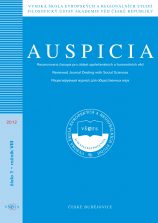Фразеологизмы публицистического дискурса как маркер национально-культурной специфики
Phraseological Units of Journalistic Discourse as Sign of National and Cultural Identity
Author(s): Jana Talířová, Elena TomáškováSubject(s): Media studies, Eastern Slavic Languages, Politics and communication, Sociology of Culture, Identity of Collectives, Phraseology
Published by: Vysoká škola evropských a regionálních studií, z. ú.
Keywords: phraseology; media discourse; national and cultural specificity; language picture of the world;
Summary/Abstract: The paper deals with the phraseological units of the political media discourse in terms of reflecting the national and cultural specifics. As the subject of the study, the phraseological units of English and Russian journalistic discourse with similar semantics that grab the headlines and fill the front pages of the newspapers are chosen. The analysis showed that an English idiom assumes an active position of the subject and has predominantly positive connotation, and a Russian idiom on the front pages of the newspapers assumes a passive position of the subject and is often used for discrediting. On that basis, a conclusion regarding the national-cultural specifics of the relationship «subject – media» is drawn. English idioms reflect the concept of the modern Western world, according to which publicity (popularity) created by the media is the key to success. Russian phraseology is based on the long-established Orthodox tradition of condemning worldly glory and pride. The paper suggests that in connection with the changes in modern Russian society under the influence of the West, the calques of English phraseology can be found in the Russian journalistic discourse.
Journal: Auspicia
- Issue Year: 2018
- Issue No: 1
- Page Range: 70-77
- Page Count: 8
- Language: Russian

